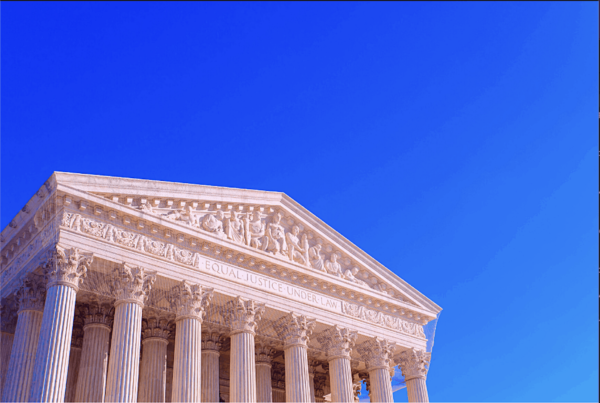SCSJ: “Today, the Supreme Court ignored the impact of Arizona’s racist, anti-voter legislation”
Durham, N.C. (July 1, 2021) — A ruling by the U.S. Supreme Court today denied challenges to two election restrictions in Arizona and narrowed the application of Section 2 of the Voting Rights Act without foreclosing the possibility to bring future claims.
The case, Brnovich v. Democratic National Committee involved challenges to two racially discriminatory Arizona policies under Section 2 of the Voting Rights Act of 1965. The two policies at issue: (1) would require out-of-precinct ballots to be entirely discarded; and (2) would bar anyone but a voter’s family member or caregiver from returning early ballots.
In a 6-3 ruling, Justice Alito, writing for the Court, held that Arizona’s out-of-precinct policy and ban on early ballot returns do not violate Section 2 of the Voting Rights Act, and that the latter ban was not enacted with a racially discriminatory purpose, saying “The mere fact that there is some disparity in impact does not necessarily mean that a system is not equally open or that it does not give everyone an equal opportunity to vote.”
In Justice Kagan’s dissent, joined by Justices Breyer and Sotomayor, she writes in response “What is tragic here is that the Court has (yet again) rewritten—in order to weaken—a statute that stands as a monument to America’s greatness, and protects against its basest impulses.”
In response to the Court’s ruling, Southern Coalition for Social Justice (SCSJ)’s Co-Executive Director and Chief Counsel for Voting Rights Allison Riggs stated:
“In Brnovich, the Ninth Circuit Court of Appeals ruled that Arizona violated the Voting Rights Act, citing overwhelming evidence that state law deliberately made it harder for voters of color to cast their ballots. Today, the Supreme Court ignored the impact of Arizona’s racist, anti-voter legislation, weakened the Voting Rights Act’s role in protecting equal access to the ballot, and opened up our democracy to more attacks from power-hungry politicians. We must do what this Supreme Court would not: hold the line for the freedom to vote at the federal, state and local levels, continue fighting to protect civic participation for all people, and ensure that every voter’s voice can be heard.”
SCSJ filed a “friend of the court” brief in Brnovich on behalf of four A. Philip Randolph Institute (APRI) chapters across the South (Central Virginia, North Carolina, Miami-Dade, and Memphis) illustrating how attacks on voting rights in North Carolina demonstrate the need for Section 2 protections to secure equal access to the ballot box free for Southern voters of color.
CONTACTS:
Sailor Jones, 919-260-5905, sailor@scsj.org
Gino Nuzzolillo, 402-415-4763, gino@scsj.org
###
The Southern Coalition for Social Justice, founded in 2007, partners with communities of color and economically disadvantaged communities in the South to defend and advance their political, social, and economic rights through the combination of legal advocacy, research, organizing, and communications. Learn more at southerncoalition.org and follow our work on Twitter, Facebook, and Instagram.

